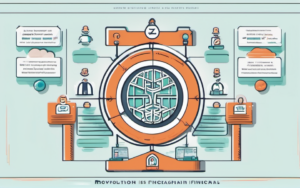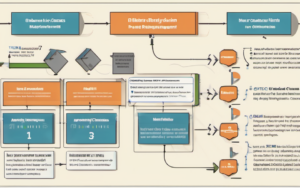The world is rapidly transitioning towards a digital future, and at the heart of this transformation lies blockchain technology. This revolutionary technology is poised to reshape our financial systems and potentially pave the way for a cashless society. While the concept might seem futuristic, the underlying principles of blockchain are already transforming how we interact with money and financial services.
The Rise of Blockchain and its Impact on Finance
What is Blockchain?
At its core, blockchain is a decentralized, immutable ledger that records transactions across a network of computers. Imagine a public, transparent database that everyone can access and verify, but no single entity can control. This distributed nature makes blockchain incredibly secure and resistant to tampering.
Blockchain’s Role in Cryptocurrency
Blockchain technology first gained mainstream attention with the rise of cryptocurrencies like Bitcoin. These digital currencies operate on blockchain networks, enabling peer-to-peer transactions without the need for intermediaries like banks. While cryptocurrencies have faced volatility and regulatory challenges, they demonstrate the potential of blockchain to disrupt traditional financial systems.
Beyond Cryptocurrency: Blockchain Applications in Finance
Blockchain’s applications extend far beyond cryptocurrencies. It’s being used to streamline supply chains, manage digital identities, and improve transparency in government processes. In the realm of finance, blockchain offers solutions for faster and more efficient cross-border payments, secure digital asset management, and even fractional ownership of assets.
The Cashless Society: A Vision of the Future
The Advantages of a Cashless Society
A cashless society, where digital payments become the primary mode of exchange, offers several advantages. It can enhance convenience and efficiency, reducing the need for physical cash and its associated risks. This can also boost financial inclusion by providing access to financial services for those who lack traditional banking options.
Challenges and Concerns of a Cashless Society
Despite its potential, a cashless society also presents challenges. Concerns about digital privacy and data security loom large, as do the potential for financial exclusion for those without access to digital technology. Furthermore, the reliance on electronic systems raises vulnerabilities to cyberattacks and system failures.
Blockchain’s Potential to Drive a Cashless Society
Decentralized Finance (DeFi) and its Impact
Decentralized finance (DeFi) leverages blockchain technology to create open and accessible financial systems. DeFi applications like lending platforms, decentralized exchanges, and stablecoins challenge traditional financial institutions by providing alternative ways to access financial services.
Digital Identity and Secure Transactions
Blockchain’s ability to create secure and verifiable digital identities opens doors for more efficient and secure transactions. This can enhance trust in online transactions, streamline KYC (Know Your Customer) processes, and reduce fraud.
The Role of Central Bank Digital Currencies (CBDCs)
Central banks around the world are exploring the potential of issuing their own digital currencies, known as CBDCs. These digital versions of fiat currencies could be built on blockchain technology, offering greater efficiency and security for financial transactions.
The Future of Money: A Hybrid Approach?
Coexistence of Cash and Digital Currencies
While a fully cashless society may seem distant, a hybrid approach where cash and digital currencies coexist is more likely. This allows for greater choice and flexibility, catering to diverse preferences and addressing concerns about financial inclusion.
The Importance of Financial Inclusion
As we move towards a more digital financial landscape, it’s crucial to address the needs of those who might be excluded. Efforts to bridge the digital divide and ensure equitable access to financial services are essential to avoid exacerbating existing inequalities.
Regulation and Security Considerations
The transition to a more digitalized financial system necessitates robust regulatory frameworks and security measures. Governments and financial institutions must collaborate to address concerns about cybersecurity, data privacy, and consumer protection.
The potential of blockchain for a cashless society is undeniable. It promises greater efficiency, transparency, and security in financial transactions. However, the path to a cashless future is not without its challenges. Addressing concerns about financial inclusion, cybersecurity, and regulation is crucial to ensure a smooth and equitable transition. The future of money is likely to be a hybrid one, where cash and digital currencies coexist, offering choices and opportunities for individuals and businesses alike. Embracing innovation and adaptability will be key to navigating this exciting and evolving landscape.




